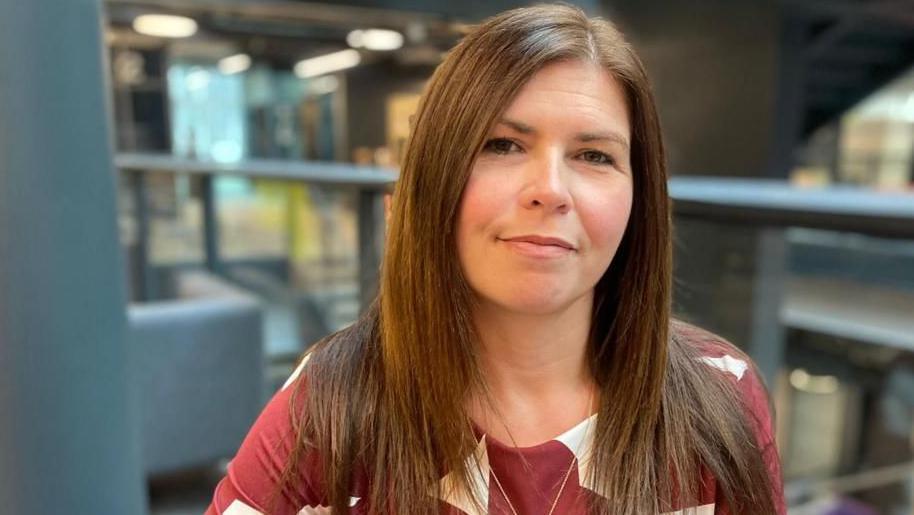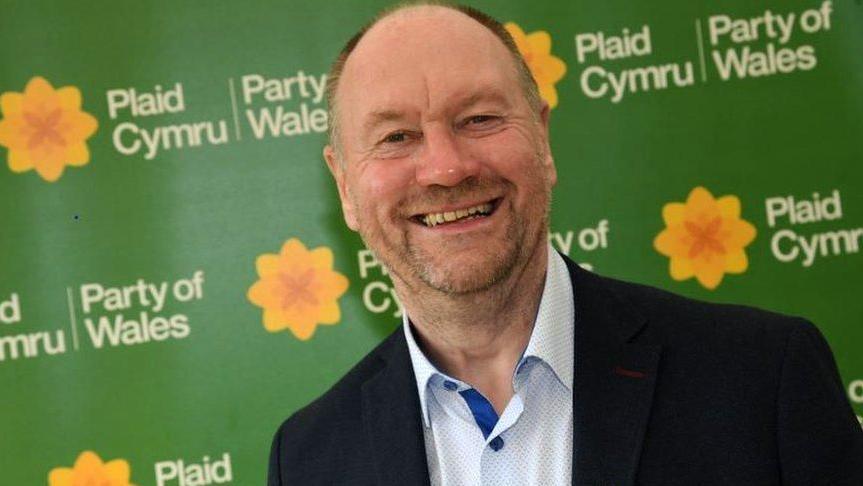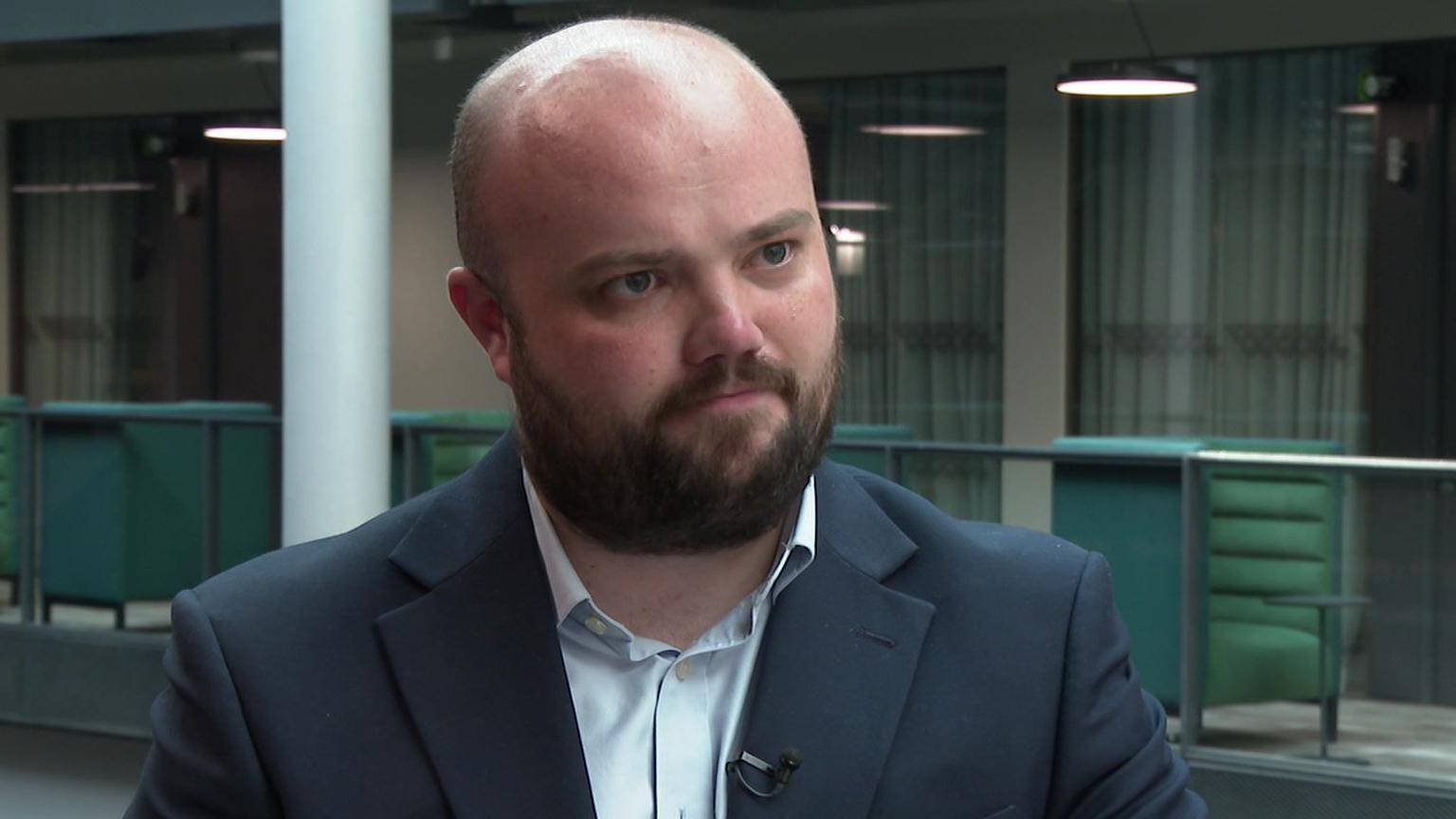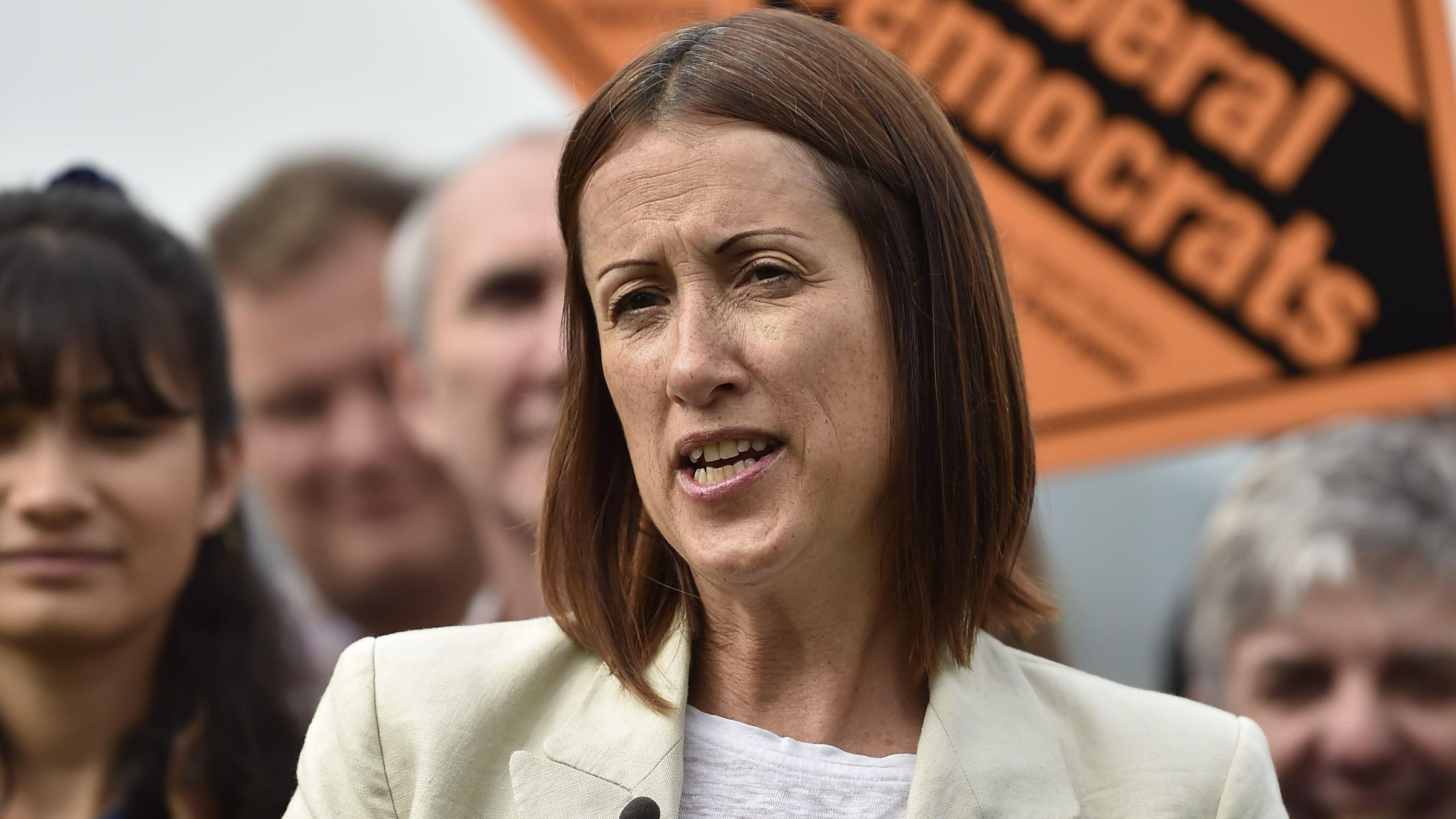Plaid Cymru's school libraries pledge criticised

NAHT Cymru called Plaid Cymru's pledge of putting libraries in all primary schools "short-sighted"
- Published
A headteachers' union has dismissed a Plaid Cymru pledge to put libraries in all primary schools as "short-sighted" and a "red herring".
Announcing the policy, Plaid education spokesperson Cefin Campbell said guaranteeing "library spaces" in every primary by 2030 would help improve literacy.
But NAHT Cymru's Laura Doel said all schools already provide access to books, and giving pupils "dedicated high-quality teachers and school staff" was the best way to boost literacy.
Campbell said the new policy was responding to concerns raised, including by the NAHT, that underinvestment in libraries has a direct impact on children's reading habits.
Reform would cut Welsh 'wasteful spending', Tice says
- Published2 September
Eluned Morgan not drawn on Plaid Cymru election pact
- Published26 August
Steps to independence 'not clear yet' - Plaid MP
- Published21 August
Plaid Cymru is making regular policy announcements as it seeks to capitalise on polling suggesting it could have its best chance of leading the Welsh government after next May's Senedd election.
In July, the party promised free swimming lessons for all primary school children in Wales.
Campbell launched this latest initiative at a library in Carmarthen on Wednesday, as children returned to the classroom at the start of the new school year.
Speaking before the event, he highlighted international Pisa tests for reading, taken by 15-year olds, which "put Wales at the bottom of the UK rankings".
"Plaid Cymru believes we need a 'back to basics' approach to improve outcomes, and guaranteeing library spaces in every primary school is one step towards that," he said.
"Labour have neglected the foundational role of libraries in literacy, and it's one of their many failures that not every primary school has access to an on-site library."
Plaid Cymru has estimated the policy would cost a total of £1m over four years.

Laura Doel says libraries are "sadly quite far down the priority list for most schools"
But NAHT Cymru national secretary Laura Doel responded to the announcement by insisting "all primary schools already provide access to books, so Plaid Cymru's focus on specific library spaces seems like something of a red herring".
"There are so many incredibly urgent demands on education funding and school budgets - including rapidly spiralling costs, buildings in disrepair, and sharply increasing additional learning needs - libraries are sadly quite far down the priority list for most schools," she said.
"Improving literacy is absolutely a key focus, but our members tell us that sustainable investment in reading schemes is what is needed.
"Ultimately, the best way to boost literacy is to ensure all pupils have dedicated high-quality teachers and school staff in front of them and the learning support they need."
Ms Doel also warned that "any policy that directs funding away from these crucial fundamentals would be short-sighted".
She added: "With limited resources available to schools, it would not be right to prioritise a blanket requirement for them all to have a library in place."

Cefin Campbell was one of the new Plaid Cymru Senedd members elected in 2021
How has Plaid Cymru responded to the criticism?
Campbell said the party was "committed to improving literacy" through "better spaces, better resources, and stronger support for teachers".
"This policy is a practical, affordable step toward that goal, and forms part of a wider package of education proposals we'll be announcing ahead of next year's Senedd election," he said.
"Plaid Cymru's literacy and school library policy is also a direct response to the concerns that have been raised, including by the NAHT, that underinvestment in libraries has a direct impact on children's reading habits.
"Just last year, NAHT's assistant general secretary described it as 'concerning' that fewer parents were reading to their children, citing cuts to community services and libraries as a contributing factor.
"Estyn and other expert bodies have also consistently highlighted the need for targeted interventions to improve reading outcomes and foster a stronger reading culture in Welsh schools.
"Evidence from the National Literacy Trust shows that this is an intervention that works."
'Best start in life'
Supporting the policy, the charity said its "Libraries for Primaries" campaign has helped 95 primary schools across south Wales since 2021, supplying books and training teachers and support staff "in fostering a reading for pleasure culture in their school".
It plans to reach other parts of Wales in the coming year.
Lucy Braidley, the trust's head of school libraries, said "reading for pleasure is at an all-time low nationwide, and yet so central to a child's wellbeing, confidence and academic success".
"Alongside high-quality literacy education, the provision of inclusive and inspiring dedicated reading spaces in primary schools gives every child, no matter their background or where they live, the opportunity for the best start in life."
The charity said its data indicates that, in 2022, 23%, external of state primary schools in Wales did not have a library or dedicated library space.
Is 'back to basics' a blast from the past?
It is, and dates back to the 1990s.
The back to basics phrase, used by Plaid Cymru to promote the school libraries policy, has a somewhat notorious place in UK political history.
It was used at the 1993 Conservative conference by the then Tory prime minister Sir John Major.
In his speech he called for more emphasis on personal responsibility, respect for law and order and a return to "the old values of neighbourliness, decency and courtesy".
But the words became associated with personal morality and probity when it was followed by a series of sex and financial scandals involving ministers.
Related topics
- Published28 August

- Published15 August

- Published4 April
